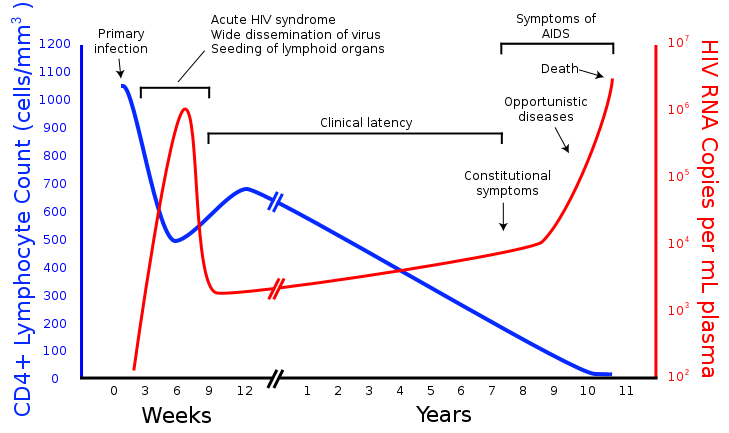Evidence shows the mass antibiotics experiment is devastating our children's health. It may be the reason so many struggle for breath and can't assimilate food properly.
by Heidi Stevenson
29 August 2011
Emerging research shows that the harmful effects of antibiotics go much further than the development of drug resistant diseases. The beneficial bacteria lost to antibiotics, along with disease-inducing bacteria, do not recover fully. Worse, flora lost by a mother is also lost to her babies. The missing beneficial gut bacteria are likely a major factor behind much of the chronic disease experienced today. The continuous use of antibiotics is resulting in each generation experiencing worse health than their parents.
Martin Blaser, the author of a report in the prestigious journal Nature writes:
Antibiotics kill the bacteria we do want, as well as those we don't. These long-term changes to the beneficial bacteria within people's bodies may even increase our susceptibility to infections and disease.
Overuse of antibiotics could be fuelling the dramatic increase in conditions such as obesity, type 1 diabetes, inflammatory bowel disease, allergies and asthma, which have more than doubled in many populations.
Aside from the development of superbugs, we're now seeing clear documentation that the overall long term effects of antibiotics are devastatingly harmful to our health. Speaking to ABC News, Blaser said:
Antibiotics are miraculous. They've changed health and medicine over the last 70 years. But when doctors prescribe antibiotics, it is based on the belief that there are no long-term effects. We've seen evidence that suggests antibiotics may permanently change the beneficial bacteria that we're carrying. [Emphasis my own.]
Notice that term, permanent. Without considering the potential risks in the casual use of antibiotics, it now looks like conventional medicine is creating several pandemics of some of the worst chronic diseases known.
Mass Use of Antibiotics
By the time a child reaches age 18 in the industrialized world, the chances are he or she has been given 10-20 courses of antibiotics. That misuse continues into adulthood, and they're casually prescribed to pregnant women.
That's where the situation grows ever worse. Part of a normal childbirth is a baby's passage through the birth canalwhere it's exposed to its first dose of beneficial bacteria. (This should give pause to anyone considering a caesarian birth that isn't absolutely necessary.)
When a mother's microbiota is deficient, her child is born to a deficiency. The evidence now appears to show that, once a probiotic deficiency exists, it is never recoveredand it's passed down the generations. Therefore, each generation is likely to suffer from poorer health than the parents enjoyed.
Costs of Antibiotic-Induced Chronic Conditions
Healthcare costs rise and rise in treating this chronic ill health. Consider the pandemic status of diabetes and asthma in children today. Those diseases were extremely rare 50 years ago, and now they're literally routine. Yet, the focus continues to be on treatmentwhich increasingly lines the pockets of Big Pharma and doctors.
The search for cause has practically been ignored, even in the face of rising rates of chronic illness. Instead, treatment is the touchstone. Ever more toxic methods of suppressing symptoms, while hiding adverse effects, are researched and pushed on conventional medicine's victims.
Two of the most critical functions in health are drastically compromised in enormous numbers of today's children.
The ability to metabolize food and the ability to breathe are being stolen from this generation. Yet the treatment they're receiving for this poor health does nothing to make them well. It only masks the symptoms and makes their children even sicker!
On top of those losses, children suffer from allergies, their bodies' inability to distinguish between disease-inducing agents and harmless substances. They suffer from autoimmune disorders, their bodies' inability to distinguish between foreign substances and parts of their own bodies.
Has there ever been a generation of children whose inherent health has been so devastated by the very medical system that is supposedly responsible for their health?
Iatrogenic Disease
Iatrogenic disorders are health problems caused by medical errors. They are now officially the third-leading cause of death in the United States. But those numbers do not include early deaths from diabetes, asthma, allergies, chronic bowel disorders, or cancerall of which have been documented as results of antibiotic usenor are the miseries suffered by the people burdened with them reckoned in the iatrogenic toll.
If we were to add all those early deaths to the iatrogenesis numbers, as should be done, it would be obvious that conventional medicine is the greatest killer and thief of health the world has ever known. And apparently, one of the most significant causes of iatrogenic illness is antibiotics, that most common of treatments handed out like candy.




